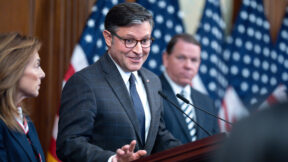Israel 2.0: Land of Milk, Honey and VC-Backed Start-Ups (EXCERPT)
Agassi was caught between three possible commitments. He needed a country, a car company, and the money, but to get any one of them he first needed the other two. For example, when Peres and Agassi had gone to then prime minister Ehud Olmert to secure his commitment to make Israel the first country to free itself from oil, the premier had set two conditions: Agassi had to sign on a top-five carmaker and raise the $200 million needed to develop the smart grid, turning half a million parking spaces into charging spots, and building swap stations. Now Agassi had the carmaker, and it was time to fulfill Olmert’s second condition: money.
Still, Agassi had heard enough to believe that his idea could take off. Stunning the tech world, he quit his job at SAP to found Better Place. (It took four conversations to convince the SAP management that he was serious about quitting.)
Agassi raised the $200 million, making Better Place the fifth-largest start-up in history.
But investors around the globe were not jumping at a plan that involved reimagining some of the largest, most powerful industries in the world: cars, oil, and electricity. Plus, since the cars were useless without the infrastructure, the charging grid would have to be developed and deployed before the cars were released in significant numbers. That meant spending most of the $200 million to wire the entire country up front—an enormous capital expenditure that would make investors’ heads spin. Ever since the tech bubble had burst in 2000, venture capitalists were much less venturesome; no one wanted to spend tons of money up front, well before the first dollar of revenue showed up.
Except for one investor, that is—Israeli billionaire Idan Ofer, who had just made the largest ever Israeli investment in China by buying a major stake in the Chinese car manufacturer Chery Automobile. Six months before, Ofer had also bought an oil refinery. So he knew a thing or two about the auto and oil industries. When Mike Granoff, an early American investor in Better Place, suggested tapping Ofer, Agassi said, “Why would he help me put him out of his two newest businesses?” But Agassi had nothing to lose.
Forty-five minutes into their meeting, Ofer told Agassi he was in for $100 million. He later increased his stake by another $30 million and told his Chinese auto team he wanted it to build electric cars.
Agassi raised the $200 million, making Better Place the fifth-largest start-up in history. With Israel in place as the first test case, others were quick to follow. As of this writing, Denmark, Australia, the San Francisco Bay Area, Hawaii, and Ontario—Canada’s most populous province—have all announced that they will join the Better Place plan. Better Place was the only foreign company asked to compete in developing an electric vehicle system for Japan, a highly unusual step for the historically protectionist Japanese government.
Among the many skeptics is Thomas Weber, the Mercedes research and development chief. He said that in 1972 his company had actually built an electric bus with a swappable battery, called the LE 306, and discovered that changing a battery could cause electrocution or fire.
Better Place’s answer has been a working battery swap station. Using one is like pulling into a car wash. Only, once the driver pulls in, a large rectangular metal plate—much like the lifts at the back end of moving trucks—rises up from underneath the car. The car then retracts the thick two-inch metal hooks securing the enormous blue battery, releasing it so it rests on the plate. The plate moves back down, drops the spent battery in a charging station, picks up a full battery, and lifts it into place under the car. Total time for the completed automated swap: sixty-five seconds.
Agassi is proud of how his team solved the engineering problem of precisely, instantly, and reliably releasing a battery that weighs hundreds of pounds. They employed the same hooks used to hold five-hundred-pound bombs in place on air force bombers. There was no room for error in a bomb-release mechanism; the battery would be just as secure, yet removable, in electric cars.
If it succeeds, the global impact of Better Place on economics, politics, and the environment might well transcend that of the most important technology companies in the world. And the idea will have spread from Israel throughout the world.
Companies like Better Place and entrepreneurs like Shai Agassi don’t appear every day. Yet a glance at Israel shows why it is not so surprising that, as Boston’s Battery Ventures investor Scott Tobin predicted, “the next big idea will come from Israel.”
Read more excerpts from the book here and here.
Dan Senor is an adjunct senior fellow at the Council on Foreign Relations and a professional investor. From 2003-2004, he was based in Baghdad as a senior adviser to the U.S.-led Coalition in Iraq. Saul Singer is a columnist for the Jerusalem Post, where he also served for six years as editorial page editor. For more information about the book and its authors click here.
This is an opinion piece. The views expressed in this article are those of just the author.




